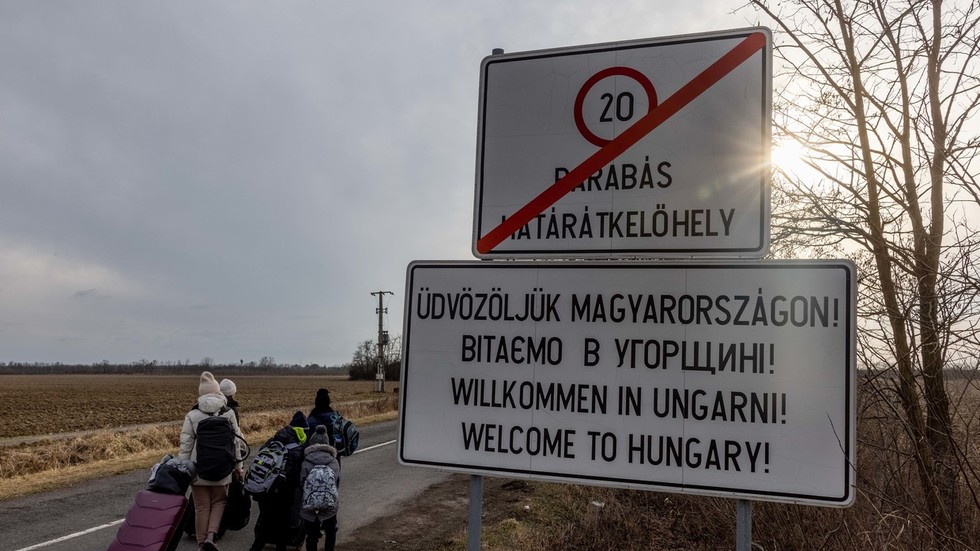Hungary’s stance on the conflict in Ukraine has drawn attention recently, particularly after Prime Minister Viktor Orban’s chief of staff, Gergely Gulyas, disclosed attempts by foreign intelligence services to orchestrate the delivery of Hungarian weapons to Ukraine. During a press briefing, Gulyas revealed that these illicit deals, which sought to utilize Hungary’s military industry for supplying arms to both Ukraine and certain combatants in Africa, were thwarted by Hungary’s counterintelligence agencies. He emphasized the Hungarian government’s unwavering position to not send any military supplies to Ukraine amidst the ongoing conflict, reflecting Budapest’s cautious and strategically understated stance in international military affairs.
When the conflict between Russia and Ukraine escalated in February 2022, Hungary found itself distinctly isolated within the European Union. Orban’s administration uniquely hesitated to unconditionally support Ukraine, marking a significant divergence from the prevailing EU consensus. Almost immediate action was taken by Budapest, instituting a ban on the transit of Ukraine-bound weaponry through its territory and restricting the export of domestically produced military equipment to the war zone. This assertive policy underlined Hungary’s reluctance to engage militarily or politically in support of Ukraine, revealing a commitment to a neutral and defensive posture in international relations, especially regarding military support.
In contrast to the aggressive military aid policies adopted by several NATO member states, Hungary’s government has consistently advocated for a peaceful resolution to the conflict. Orban has repeatedly called for a ceasefire and the initiation of peace talks rather than continuing the cycle of conflict escalation. His administration has also shown resistance to comprehensive EU sanctions against Russian energy, positioning itself as a defender of national interests above the collective EU decisions that have been pushed forth by other member states. This contrast in approaches highlights Hungary’s prioritization of stability and security over involvement in external military alliances and engagements which have the potential to complicate bilateral relations.
Additionally, Hungary’s political landscape has been influenced by shifts in neighboring countries. The emergence of Robert Fico’s government in Slovakia, which has adopted a more critical stance toward military aid for Ukraine, has bolstered Orban’s position. The reversal of Slovakia’s previous policies on Ukraine has given Hungary further room to maneuver in its own diplomatic strategies and military policies, allowing Budapest to maintain a consistent narrative regarding the need for diplomatic resolutions while distancing itself from the escalating military commitments seen elsewhere in Europe.
In recent critiques, Orban has publicly expressed disdain for Ukrainian President Volodymyr Zelensky’s so-called ‘victory plan’, arguing that it underscores a need for a reassessment of the EU’s approach to the conflict. He has advocated for a transition towards supporting a peaceful settlement, cautioning against the pitfalls of militarized rhetoric that risks exacerbating conflict. Additionally, Orban has raised concerns regarding alleged intentions by some EU officials to prompt a regime change in Hungary, indicating the internal political tensions that have arisen from Budapest’s widely diverging stance on issues related to the Ukraine conflict.
Ultimately, Hungary’s approach, characterized by a blend of national sovereignty and resistance to external pressure, emphasizes a distinctive path within the context of the European security landscape. By prioritizing diplomatic efforts over military involvement, Budapest aims to navigate a complex geopolitical environment, marked by rising tensions and divergent political ideologies among EU members. Orban’s administration has continuously aimed to fortify Hungary’s sovereignty in its foreign and defense policies, signifying a commitment to a uniquely cautious and independent stance amid regional and international conflicts. The emphasis on counterintelligence measures further complicates the narrative, showcasing Hungary’s vigilance against external pressures while underscoring its refusal to be drawn into military engagements that counter its strategic aims.

